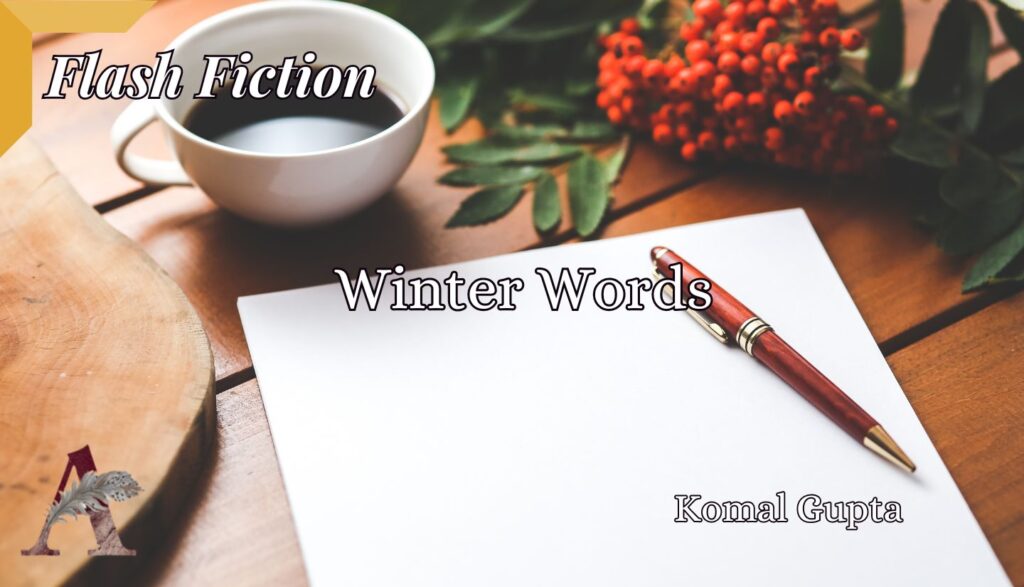
The winter sun poured through the lone window of the post office, casting dust-laden rays upon the polished surfaces of the interiors. Despite the bustling efficiency of the place, its shiny counters and walls plastered with announcements and schemes, the window seemed to narrate a tale of isolation. Positioned at the corner of the main street, it was a witness to the passage of grudging time. The light filtering through the air, thick with stories untold.
Among these silent witnesses was I. Not just any pen, but a relic from a bygone era. I am a military issue pen with the proud insignia of my unit’s coat of arms, ‘The Mighty Eagle’. My not so shiny exterior is etched with the scars of history. My nib, though worn, is still sharp enough to inscribe tales of valour and despair. My journey from the battlegrounds to this counter is a tale woven into the aftermath of war. It is a testament to the resilience of memory and metal alike in the years after the Great War had finally concluded. Sadly, my previous owner, a decorated military general, was a tad forgetful. He had swapped me with the post office pen absentmindedly on his visit to the post office. The substitute civilian pen was carried away in his worn-down military uniform’s top pocket. The counter has been my home ever since. A wooden office stationery issue pen holder is where I stand watch, eager to be of service.
On this particular day, my attention was caught by a man. A visitor in the post office, who seemed to carry the weight of the world on his shoulders. The heaviness of his steps spoke volumes of the many burdens he carried in the years of reconstruction. The promise of peace was often overshadowed by personal battles still being fought silently and wearily.
The man stepped forward, a slip of paper trembling in his hand. “I’m here for this,” he said, his voice barely above a whisper, as if afraid to disturb the echoes of the past that I knew all too well. They hung around, as if a pall enveloping the air.
“Quite a day, isn’t it?” the clerk attempted to spark a bit of cheer, a futile effort to pierce the man’s evident gloom.
The visitor barely nodded, his attention momentarily caught by a figure outside – a man with a face marked by an ugly scar, whose gaze was fixated on him with unsettling intensity. “Do you know who that man is?” he asked, a hint of fear lacing his question.
“No idea,” the clerk replied, indifferent to the undercurrents of tension. “Just another day, another face.”
But I knew differently. The aura of unease that hung over the visitor, the scarred face man’s predatory gaze, it was all too familiar. It spoke of conflicts past and present, of battles fought in the open and within the recesses of one’s reality.
As the visitor hurriedly left with his parcel, the scarred face man in pursuit, I realized there was more to his interest than mere coincidence. The scarred face man definitely had an ulterior motive, a shadow from the past that clung to both of them like a spectre. It was palpable among those who lingered in the post office, shady figures bent down by tales of gambling debts accrued in the chaos of war’s end. For many of them, it was a desperate bid for fortune that had entangled their fates with the unscrupulous.
And there I remained, a military insignia pen on the counter. A silent witness to the stories of courage and fear, love and loss. My days of inked glory, famous and unfamous may have passed, but my spirit remains indelible. A keeper of tales in scribbled addresses, hastily written letters and notes in this lonely modern outpost. Life etches narratives of those who pass by, words seek ingress to freedom that has been hard fought. I am a fading beacon of hope that some stories, however fraught with shadows, find their way to the light. I wonder if the weary visitor made his way back home safely? Hope is what we live by, I whisper to myself as I gaze out from my sentinel’s post. It sustains.
Komal Gupta

0 Comments